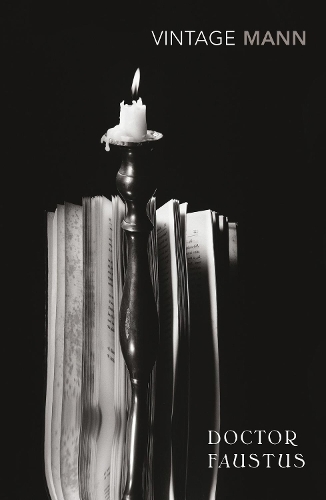
Doctor Faustus
(Paperback)
Available Formats
Publishing Details
Doctor Faustus
By (Author) Thomas Mann
Vintage Publishing
Vintage Classics
1st January 1997
28th October 1996
United Kingdom
Classifications
General
Fiction
Fiction in translation
833.912
Physical Properties
Paperback
752
Width 132mm, Height 198mm, Spine 46mm
521g
Description
A masterpiece of German modernism and one of the greatest novels of the twentieth century A masterpiece of German modernism and one of the greatest novels of the twentieth century. Adrian Leverk hn is a young man destined for success. He is a composer - creative and brilliant, but he will stop at nothing to achieve greatness. Intentionally contracting syphilis in order to deepen his creative potential through madness, Adrian makes his pact with nature. Mann's interpretation of the Faustian legend is a story of madness and sanity, genius and corruption, intellectual attainment and Germany's moral fall. 'Arguably the great German novel' New York Times
Reviews
Arguably the great German novel * New York Times *
Perhaps not since Thomas Mann's Doctor Faustus has a novelist conveyed so tangibly and exaltedly the mechanism and the aesthetic effect in musical performance * New York Times *
The real masterpiece * New York Times *
Mann struggled with his own conflicted feelings about Germany and German culture, and in his magisterial Doctor Faustus found the perfect metaphor for what his country had done; it had bargained with the devil, and lost. * The Herald *
Author Bio
Thomas Mann was born in 1875 in Lubeck, of a line of prosperous and influential merchants. Mann was educated under the discipline of North German schoolmasters before working for an insurance office aged nineteen. During this time he secretly wrote his first tale, Fallen, and shortly afterwards left the insurance office to study art and literature at the University in Munich. After a year in Rome he devoted himself exclusively to writing. He was only twenty-five when Buddenbrooks, his first major novel, was published. Before it was burned by Hitler, it had sold over a million copies in Germany alone. His second great novel, The Magic Mountain, was published in 1924 and the first volume of his tetralogy Joseph and his Brothers in 1933. In 1929 he was awarded the Nobel Prize for literature. In 1933 Thomas Mann left Germany to live in Switzerland. Then, after several previous visits, in 1938 he settled in the United States where he wrote Doctor Faustus and The Holy Sinner. Among the honours he received in the USA was his appointment as a Fellow of the Library of Congress. He revisited his native country in 1949 and returned to Switzerland in 1952, where The Black Swan and Confessions of Felix Krull were written and where he died in 1955.
